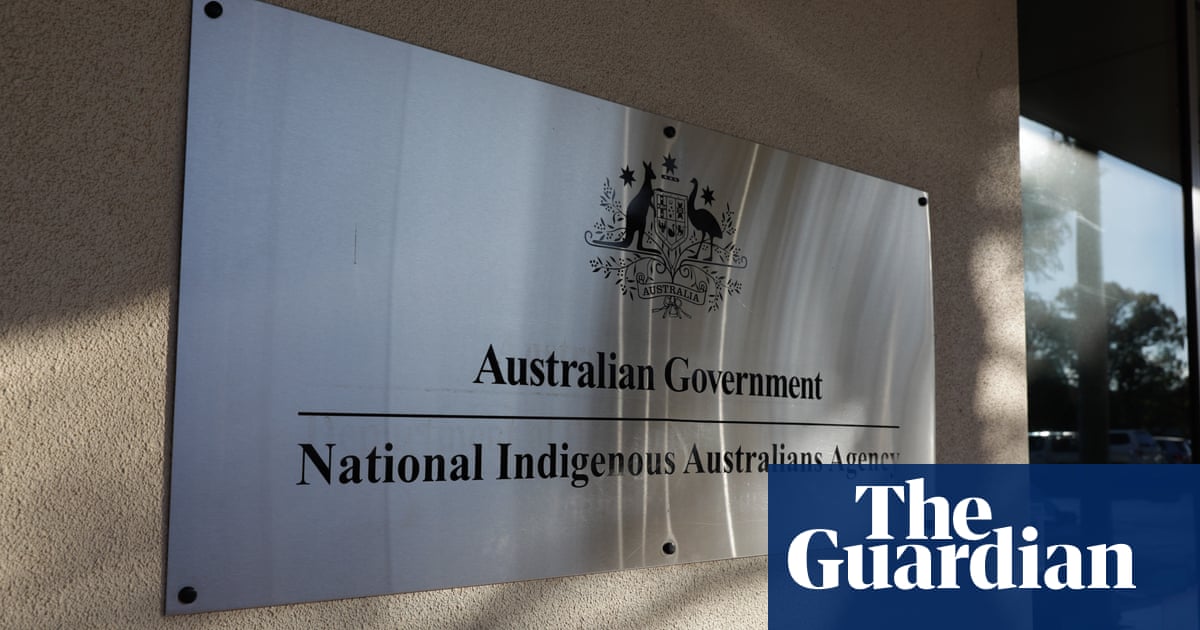
A coalition of financial rights advocates say they have “serious concerns” about an Albanese government’s $96m support scheme for the thousands of Aboriginal people harmed by the collapse of the predatory funeral fund ACBF-Youpla, after revelations that almost a third of the funds will be spent on its own departments.According to documents published on the government’s AusTender site on Thursday, the maximum amount it is expecting to pay out to the 13,700 affected policyholders is $66.6m. Over the years of ACBF-Youpla’s operations, policyholders paid millions of dollars into the business in the belief that their funerals would be taken care of.Guardian Australia understands that close to $30m of the scheme announced in February will be spent by two of its own departments, the National Indigenous Australians Agency (Niaa) and Services Australia.Niaa confirmed only $66.6m would be available as cash payouts or funeral bonds to affected policyholders.“The balance of funding is for government agencies to deliver the program, communicate with First Nations people who are eligible for resolution payments and to provide them with financial counselling to explain the funeral bond and resolution payments to help inform people’s decision,” a spokesperson for Niaa said.Services Australia will reportedly receive $20m to administer the scheme. When asked about the arrangement, Services Australia referred all queries to Niaa.The revelations come amid growing concerns about Services Australia implementing programs that have exposed Aboriginal people to financial harm.Guardian Australia has revealed widespread problems with the Centrepay system run by Services Australia, including its continued use by rent-to-buy appliance companies that had previously been sanctioned by the Australian Securities and Investments Commission (Asic) for predatory conduct. Energy company AGL received hundreds of thousands of dollars from welfare recipients using Centrepay, long after they had ceased being customers.Services Australia allowed ACBF-Youpla to access Centrepay to sign up customers, after which its profits sharply increased. Between 1992 and 2001, the company received about $5m in payments. After Centrepay was approved in 2001, it garnered $169m in payments.The Save Sorry Business Coalition of financial advocates, which has been lobbying since 2022 for a redress scheme, says not enough money is going to victims.“First Nations advocates celebrated in February 2024 when Ministers [Linda] Burney and [Stephen] Jones announced that $97m was going to community to help heal the trauma caused by Youpla and the misuse of Centrepay,” Boandik woman and Save Sorry Business spokesperson, Bettina Cooper said.“We are now very disappointed to hear that only two-thirds of those funds will go to the people that were actually harmed after the collapse of Youpla. We understand that administering a scheme like this costs money, but we don’t think this balance is right,” Cooper said.She said they have “serious concerns” about whether the government’s plan will reach First Nations people in remote and regional communities, “especially those whose trust in Services Australia has been broken”.Julie Wiobo, from the Indigenous financial rights network Ican, says advocates feel as if they have been “used”.“First Nations financial counsellors and advocates have spent hours working with the Niaa since February in planning its rollout of the Youpla Support Program, but our voices are not being heard,” Woibo said.“Worse, we feel like our cultural expertise and insights have been used only when it is convenient and otherwise ignored in favour of a program which is not culturally appropriate.”ACBF-Youpla targeted Indigenous people using marketing materials in the distinctive red, black and yellow colours of the Aboriginal flag, including stuffed toys and colouring books for children, attending community events and by conducting door-to-door sales.It was investigated by various regulators but it was not until 2018, when its conduct was exposed in the banking royal commission, that its licence to sell new products was withdrawn, paving the way for its eventual financial collapse in 2022.That left thousands of Aboriginal people, some of them elderly and in palliative care, without the means to pay for funerals. Families had to resort to crowdfunding and some were forced to leave their loved ones’ bodies in morgues while they raised the funds.In February, the Albanese government initially announced a $97m resolution scheme for those affected. The Youpla support program is due to begin on 1 July and will run for two years. According to Niaa, eligible recipients will have the choice of a funeral bond or cash payment worth 60% of the value of their policy. Financial counselling will be offered to help them better understand their options.
Source link






